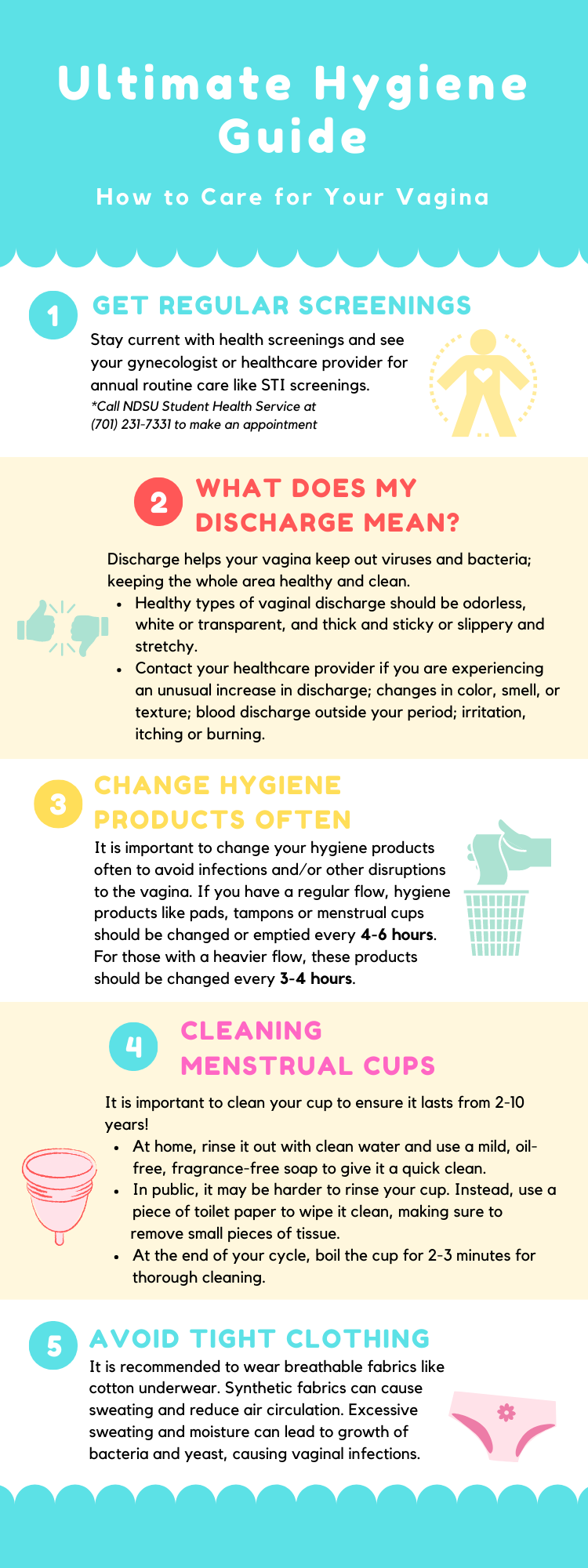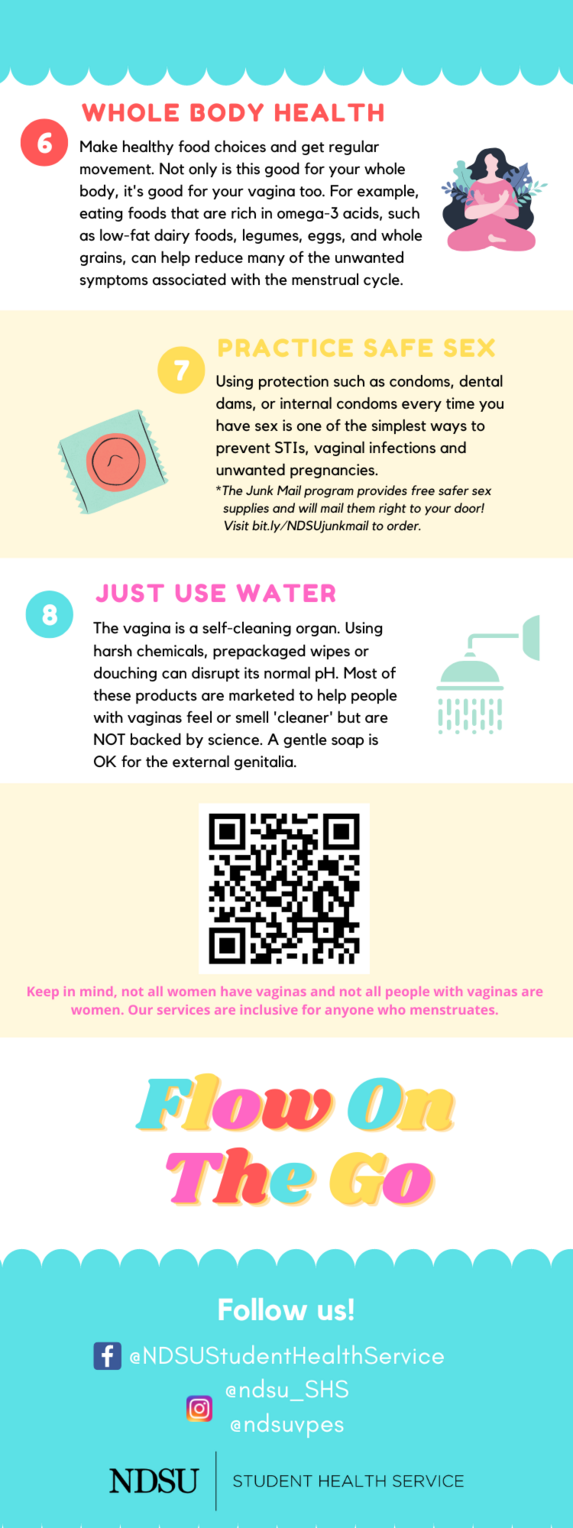The Ultimate Guide to Hygiene
What is Hygiene
The basic definition of hygiene is a practice conducive to maintaining health and preventing disease, especially through cleanliness. But, this program isn’t about how many times per week you should wash your hair or brush your teeth. We are getting into the nitty gritty of genital hygiene because it is vital to your overall health. Proper genital hygiene reduces chances of infections, it prevents transmission of diseases, and promotes a healthy relationship between you and your body!
Tips for Proper Hygiene
Get Regular Screenings
Stay current with health screenings and see your gynecologist or healthcare provider for routine care like STI testing. NDSU Student Health Service offers a variety of services to address questions or concerns you may have about your menstrual cycle, irregularities, or general wellness exams.
*Call NDSU Student Health Service at (701) 231-7331 to make an appointment or visit the Student Health Portal
What Does My Discharge Mean?
Discharge helps your vagina keep out viruses and bacteria, keeping the whole area healthy and clean.
- Healthy types of vaginal discharge should be odorless, white or transparent, and thick and sticky or slippery and stretchy.
- Contact your healthcare provider if you are experiencing an unusal increase in discharge, changes in color, smell, or texture; blood discharge outside your period; irritation, itching or burning
Change Hygiene Products Often
It is important to change your hygiene products often to avoid infections and/or other disruptions to the vagina. If you have a regular flow, hygiene products like pads, tampons or menstrual cups should be changed or emptied every 4-6 hours. For those with a heavier flow, these products should be changed every 3-4 hours.
Cleaning Menstrual Cups
Cleaning and storing your cup properly will ensure that it lasts for several years.
- At home, rinse it out with clean water and use a mild, oil-free, fragrance-free soap to give it a quick clean.
- In public, it may be harder to rinse your cup. Instead, use a piece of toilet paper to wipe it clean, making sure to remove small pieces of tissue.
- At the end of your cycle, boil the cup for 2-3 minutes for thorough cleaning.
Avoid Tight Clothing
It is recommended to wear breathable fabrics like cotton underwear. Synthetic fabrics can cause sweating and reduce air circulation. Excessive sweating and moisture can lead to growth of bacteria and yeast, causing vaginal infections.
Whole Body Health
Make healthy food choices and get regular exercise. Not only is this good for your whole body, it's good for your vagina too. For example eating foods that are rich in omega-3 acids, such as low-fat dairy foods, legumes, eggs, and whole grains can help reduce many of the unwanted symptoms associated with the menstrual cycle. It is also recommended to avoid foods that are high in salt and caffeine. Some supplements like vitamins D and E, magnesium, and calcium may help reduce menstrual pain, regulate cycles, and address symptoms of premenstrual syndrome (PMS).
Practice Safe Sex
Using protection such as condoms, dental dams, or internal condoms every time you have sex is one of the simplest ways to prevent STIs and vaginal infections and unwanted pregnancies.
*The Junk Mail program provides free safer sex supplies and will send them right to your door!
Just Use Water
The vagina is a self-cleaning organ. Using harsh chemicals, prepackaged wipes or douching can disrupt its normal pH. Most of these products are marketed to help people feel or smell "cleaner" but are NOT backed by science. A gentle soap is OK for the external genitalia.
Bacterial Infections
Several of the bacteria types present in a vagina are harmless, but a condition that people sometimes experience during their period is bacterial vaginosis. The main symptom is a grey discharge from the vagina with a fishy or musty smell. While the condition typically fades on its own, there are treatment options such as antibiotics or medicated cream available. Anyone who suspects they have this condition should contact their healthcare provider.




